
 The information contained in this book is provided for general purposes only. It is not intended as, and should not be relied upon as, medical advice. The publisher and authors are not responsible for any specific health needs that may require medical supervision. If you have underlying health problems, or have any doubts about the advice contained in this book, you should contact a qualified medical, dietary or appropriate professional.
The information contained in this book is provided for general purposes only. It is not intended as, and should not be relied upon as, medical advice. The publisher and authors are not responsible for any specific health needs that may require medical supervision. If you have underlying health problems, or have any doubts about the advice contained in this book, you should contact a qualified medical, dietary or appropriate professional. 
Contents
Foreword by Dr Michael Mosley
Hippocrates, the father of modern medicine, claimed over 2000 years ago that all diseases begin in the gut. Its taken a long time, but we are beginning to realise just how profound Hippocrates insight really was.
Theres never been as much interest in the human gut and its tiny inhabitants, the trillions of microbes that make up the microbiome, as there is now. New research tools have enabled scientists to probe the previously secret world of the gut, and uncover more and more about the impact that the 1000 different species that live down there have on you, and you have on them. Thanks to advances in DNA technology we have learnt more surprising things about the gut in the last few years than in all of previous human history. Its been a bit like Galileo inventing the telescope and using it to discover a whole new universe, one that is larger and more complex than anything that earlier generations could ever have imagined. These new discoveries about the gut are not just of academic interest. It is becoming ever clearer just how important the microbiome is for keeping the rest of our body, and brain, in good shape.
We have recently learnt, for example, that the mix of microbes in our gut can strongly influence our weight, our mood and even our immune system. The tragedy is that a modern diet, which relies heavily on processed food, along with the widespread over-use of antibiotics, has laid waste to the modern microbiome. This helps explain some of the dramatic increases weve seen over the last few decades in obesity, type 2 diabetes, allergic diseases and food intolerances. Whats the link? Well, an addiction to junk food and the indiscriminate use of antibiotics have helped devastate our Old Friends. These are the microbes that live in our guts and which evolved with us. They are essential to our health.
Devastating these Old Friends has in turn made space for unhealthy microbes to flourish, those that encourage inflammation, weight gain and, possibly, depression. The good news is that its never too late to do something to help those Old Friends recover. Adding new foods to your diet, doing a bit more exercise, simply getting outdoors more, can all have a positive impact on your gut health. This book is only possible because of the extraordinary work done by scientists from many different countries, who have generously shared their time and research. But it is also a labour of love by its main author, Dr Clare Bailey. I have known Clare for over 35 years.
We met on our first day at medical school and married soon after graduating. As well as being a dedicated doctor, Clare has always been passionate and adventurous about food. When she was working with the Save the Children Fund in a remote part of the Amazon jungle, she was fascinated as much by her medical work there as by the unusual foods they were eating. This included, on one occasion, a giant toad, as large as a chicken, which they shared between four of them. Apparently it was delicious. These days Clare is a busy GP who, amongst other things, uses her love of food and interest in nutrition to help her patients improve their blood sugar levels and reverse their type 2 diabetes by losing weight, rather than relying on medication.
This led to her writing the bestselling 8-Week Blood Sugar Diet Recipe Book. Building on what she has learnt, she is now using food to improve her patients gut health as well as their gut size. The recipes in this book are the product of the latest science. They are gut-friendly, but taste, flavour and simplicity are equally important. They are also written with a busy person in mind, so the ingredients should be easy to access and inexpensive. 
Introduction by Dr Clare Bailey
I have been working as a doctor for over 30 years and in that time have seen a lot of remarkable medical changes and innovations, but to discover a whole new world, a new organ, if you like, one that produces chemicals, controls our appetites, moods and metabolism, that can work for us or against us depending on how we treat it this really is a new frontier.

Introduction by Dr Clare Bailey
I have been working as a doctor for over 30 years and in that time have seen a lot of remarkable medical changes and innovations, but to discover a whole new world, a new organ, if you like, one that produces chemicals, controls our appetites, moods and metabolism, that can work for us or against us depending on how we treat it this really is a new frontier.
We are starting to discover this new worlds many inhabitants, and to learn what they do, what disturbs them and how they can be nurtured or defeated. Welcome to the microbiome, the trillions of microbes that live in your intestines. This book will introduce you to some of these tiny guys busily working away to keep you happy and healthy. More importantly, it will show you how you can help them help you; how you can feed them the variety of fibre and nutrients they need and top them up with probiotics, the healthy microbes found in fermented foods. In recent decades, we have abandoned traditional ways of eating, relying on instant and processed foods, which more often than not are high in sugars. The average adult eats some 200 sandwiches a year, and the most common choice of filling is cheese, followed closely by ham.
A limited diet of this nature is bound to have a negative impact on our health and particularly on our gut health. Nor is it enough to live on a healthy diet of avocados, sweet potatoes, bagged spinach and cherry tomatoes and think youve got it sorted... Like us, our microbiome thrives on variety, which is why the recipes here offer a diverse range of proteins, whether plant-based, seafood or meat. It is why we encourage you to eat veg of every colour and try new foods and flavours. You may be reading this book because you have trouble with your gut. Perhaps you suspect a food intolerance or that you have Irritable Bowel Syndrome (IBS), and feel that your gut is in need of a reboot (see ).
As someone who loves experimenting with food, I hope most of all that you enjoy the meals we have put together and that they make you feel well and content with life. 
The Clever Guts Diet
Based on the Mediterranean way of eating
This diet is based on real food plenty of vegetables, fruits, nuts, beans, olive oil, cheese, meat and oily fish, but relatively little starchy pizza, pasta, potato or bread. We call it Mediterranean style because although many of the recipes have a Mediterranean twist, the recipes draw on healthy cuisines from all over the world. Most of the ingredients you will be familiar with; some (such as fermented foods and seaweed) will be more surprising. Where it is convenient we go back to more traditional ways of preparation that may have been lost in the era of fast, processed and packaged foods. That said, none of the recipes are particularly complicated or time-consuming.
Next page
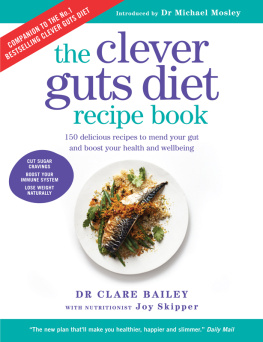

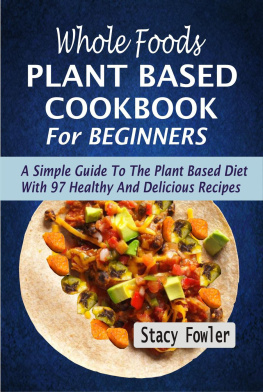
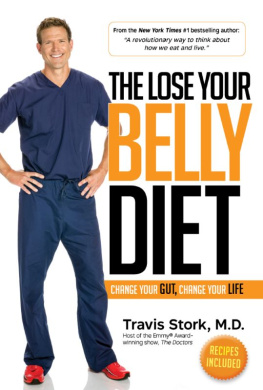
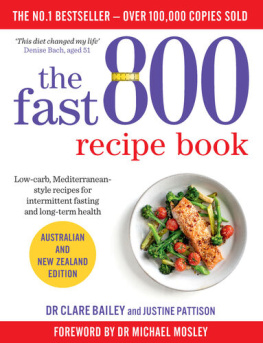
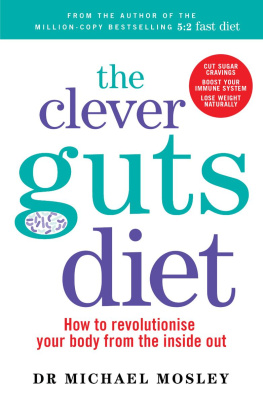
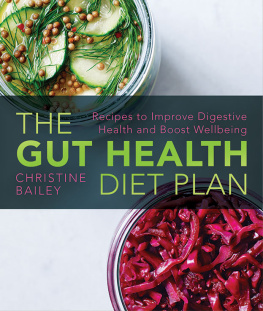
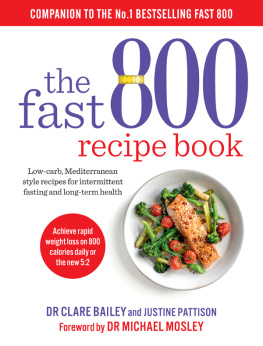

 The information contained in this book is provided for general purposes only. It is not intended as, and should not be relied upon as, medical advice. The publisher and authors are not responsible for any specific health needs that may require medical supervision. If you have underlying health problems, or have any doubts about the advice contained in this book, you should contact a qualified medical, dietary or appropriate professional.
The information contained in this book is provided for general purposes only. It is not intended as, and should not be relied upon as, medical advice. The publisher and authors are not responsible for any specific health needs that may require medical supervision. If you have underlying health problems, or have any doubts about the advice contained in this book, you should contact a qualified medical, dietary or appropriate professional. 

